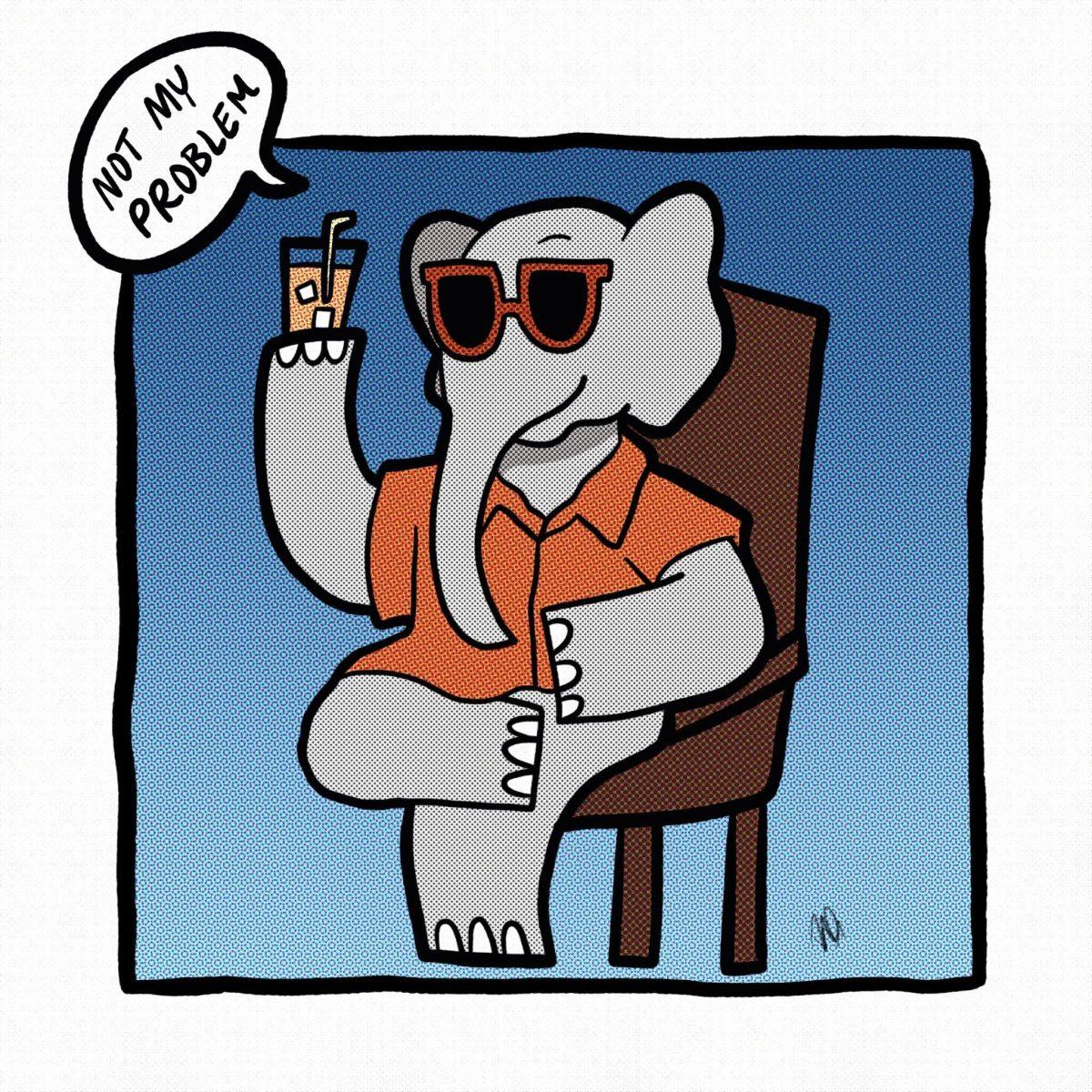Since 2016, political polarization has increased drastically nationwide. Spearheaded by Donald Trump’s election, Americans became increasingly skewed to the left or the right. While those on the left came to rally behind more class-centered issues, the right leaned into the culture war; nowhere was this more apparent than in Texas.
Conservatives in the Texas government are primarily responsible for introducing and passing legislation. According to the Austin-American Statesman, Democrats in the Texas legislature were responsible for a mere five of the 29 legislative priorities for the 88th session. While this is no surprise, newer conservative entries into the state government have found their success by making superficial talking points a significant fix of their campaigns.
This strategy has proven to rally the political base around whoever is running. Still, it often leaves people examining their stated principles and goals confounded as to what they plan to accomplish or what their responsibilities are. This creates an environment that teaches conservative politicians to stick to an established script to win their elections, making them seem all the more homogeneous.
Rep. Pat Fallon (TX-4) ran a campaign reflective of this very issue. Before stating his platform and values, Fallon’s website first greets viewers with a quote condemning “liberal elites” and “socialist agenda[s]” while also stating that whoever holds the congressional seat should “stand with President Trump.” Between the virtue signaling to his base and calls for condemning politically irrelevant issues such as “communist race theory,” the talking points on Fallon’s site are nothing new.
The campaign of Rep. Carrie Issac (TX-73) appears more promising at first, addressing issues such as veteran support and property taxes. However, it takes little time for Issac’s website to fall back on the same rhetoric used in Fallon’s. Cries of “build Trump’s wall” and “no vaccine mandates” are pretty clearly the first points Issac wants newcomers to associate her with.
This creates a dynamic where no policy measures or unique goals exist in their campaigns. However, even a moderately-critical eye can see the tactics used and compare their rhetoric with their track record.
More concerningly, in creating the bogeymen of the culture war, these politicians are willing to curtail the freedom of their constituents to curb this perceived threat. The most prominent example is Issac’s proposed bill that would ban voting on college campuses due to alleged safety concerns. Not only is this a shortsighted decision that needs to address fundamental safety issues, but it is also profoundly unpopular. Politicians like Issac run campaigns riddled with buzzwords about freedom, yet the moment they enter the office, liberty seems to matter little
It isn’t just Texas’ representatives with this problem. Texas senator Pete Flores (TX-24) falls victim to similar patterns and talking points. Flores’ endorsements page, which is listed before his issues page, lists Donald Trump and Ted Cruz. The issues page mentions critical race theory, COVID-19 vaccine mandates and other issues that resonate with the Republican base in Texas
These results are not cherry-picked either; most running on a Republican ticket last November showed similar patterns as those of Flores, Issac and Fallon.
Critics of this perspective may say that Democratic politicians do this as well and that politicians are free to run on whatever issues may concern them; nobody should feel boxed into having to care about things less exciting or essential to themselves.
While this is true to an extent, there are more effective actions politicians can take to achieve results. For example, if somebody has an issue with the public education curriculum, attending a school board or district meeting will have a more immediate impact than running for office. Running for office under these highly external platforms is something that the Democrats have yet to do on such a local level.
Democrats engaging in this rhetoric have far and away been responses to Republicans bringing about fear of a concept that does not affect their constituents. If one’s aspirations amount to wanting to change one or two things within their community, the state legislature differs from where they belong.
Newcomers and seasoned politicians suffer from the same funneling into homogeny to the detriment of their constituents. While there’s nothing wrong with having positions on more superficial issues and making them part of one’s campaign for office, Texas Republicans have a problem with making simple issues the central focus of their campaigns.
These ideas are not original, not crucial to Texans’ day-to-day lives and sow polarization every time they are campaigned on. It may be a proven formula for winning an election, but this comes with the cost of being an effective legislator.
-Kien Johnson is a sociology freshman
The University Star welcomes Letters to the Editor from its readers. All submissions are reviewed and considered by the Editor-in-Chief and Opinion Editor for publication. Not all letters are guaranteed for publication.
Opinion: Republican state leaders are as effective as they are unique
March 20, 2023
Donate to The University Star
Your donation will support the student journalists of Texas State University. Your contribution will allow us to purchase equipment and cover our annual website hosting costs.

























